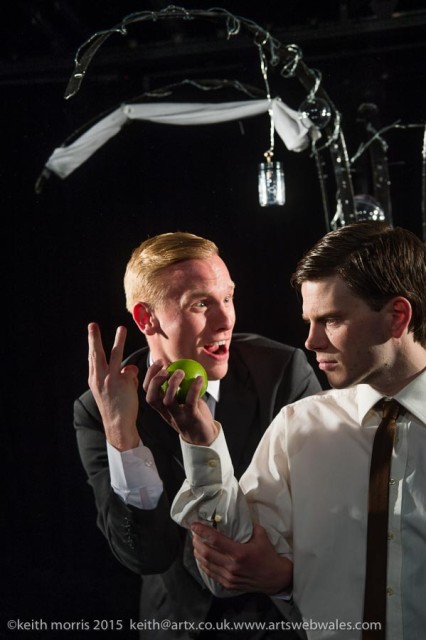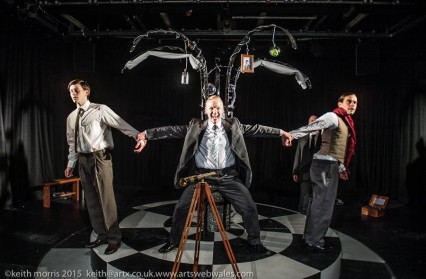Elin Williams reviews To Kill a Machine (Scriptography Productions), a play which explores the life of Alan Turing allowing audiences to see beyond his inventions.
Alan Turing is widely considered to be the father of computer science. During the Second World War, Turing worked for the government at Bletchley Park. In this time he is said to have shaved at least two years off the fight against Germany by developing techniques to crack codes and intercept Nazi messages. With the development of the first model of a computer, Turing was undoubtedly a modern day genius. Although his career alone is fascinating, it is his personal life which adds a heightened sense of drama to the story. In 1952 Turing was prosecuted for homosexual acts and, in order to avoid prison, accepted treatment with oestrogen injections that would essentially chemically castrate him. His treatment by the authorities was appalling, especially when one considers that this was a man who was so instrumental in the defeat of Nazi Germany. Turing is believed to have taken his own life in 1954 and was granted a posthumous pardon in 2013.

This tragic story forms the basis of Scriptography’s production To Kill a Machine. With a cast of four, Turing’s life is expertly portrayed in this small scale production. Using a lamppost decorated with significant objects as a set, Catrin Huws’ script manages to capture the true struggles of Turing’s life and the injustice of his persecution. There is a fluidity to the piece, aided by the fact the actors remain on stage throughout; props are symbolic and thought-provoking, particularly the little jar of cyanide which was ruled to have caused Turing’s ambiguous death in 1954. A picture of his first love hangs in a frame from the lamppost, as does the apple which was found on Turing’s bedside table after his death. Turing’s fascination with the poisoned apple scene in Walt Disney’s Snow White is suggested by his biographers to have potentially inspired his untimely demise. It is these intricate details that makes the To Kill a Machine so compelling and so different.
Gwydion Rhys is fantastic as Turing, his high pitched, stuttering voice obviously well researched. His aloofness is portrayed sensitively and occasionally provides the all-too-necessary comic relief. Rhys’ performance allows the audience to sympathise with Turing and to feel the injustice and cruelty regarding the way he was treated. The supporting cast are equally as impressive, weaving in and out of different characters with ease.
The script is fantastically candid; it certainly doesn’t shy away from the more explicit details of Turing’s life. The script plays with the idea of Turing as one of his machines, utterly indecipherable at times, indifferent and, on the surface, unresponsive. It is this idea which warrants a more emotional conclusion to the play, as the breakdown of Turing’s character certainly highlights the effects such barbaric, pseudo-scientific treatment must have had on those forced to undergo it.
Scriptography’s production explores a truly dark and captivating episode in our history which challenges us to look beyond a man’s inventions and see the person behind the name. The piece is absorbing, provocative and, sometimes, uncomfortable to watch.
Photo credit: Keith Morris
To Kill a Machine
Scriptography Productions












